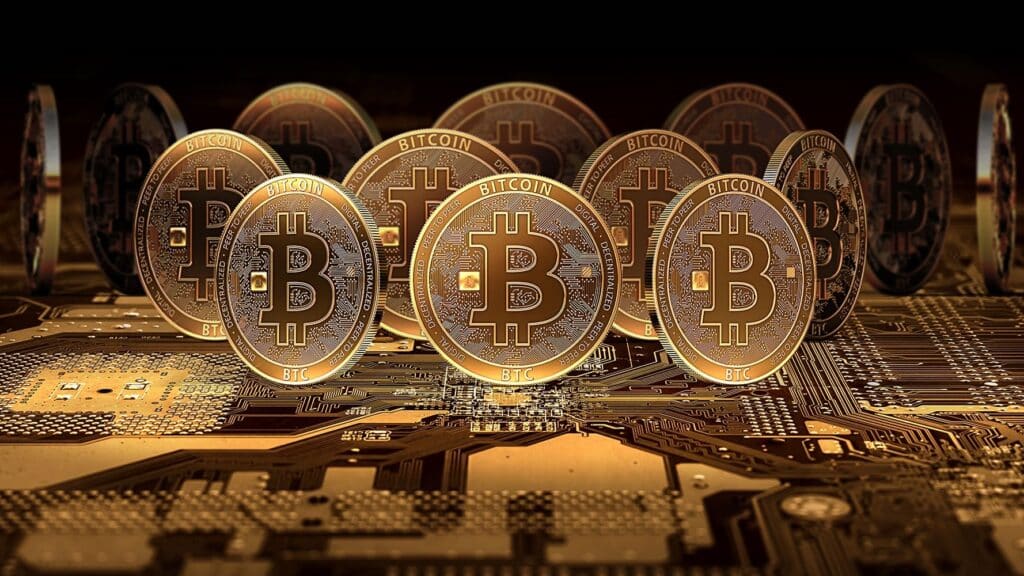The world of online gambling has seen massive changes in recent years, with new technology and emerging trends continuously reshaping the industry. One of the most exciting developments in the gaming world is the rise of decentralized casinos, powered by blockchain technology and cryptocurrencies. These innovations have the potential to revolutionize the way we think about online gaming, offering increased transparency, security, and privacy for players. In this article, we will explore what decentralized casinos are, how they work, and the role that cryptocurrencies play in shaping their future.
What are Decentralized Casinos?
Decentralized casinos are online gaming platforms built on blockchain technology, removing the need for centralized control by a single company or authority. Unlike traditional online casinos, where a central entity controls the game outcomes, payments, and player data, decentralized casinos leverage smart contracts and distributed ledgers to ensure fairness, transparency, and player autonomy. These platforms are powered by cryptocurrency, often utilizing Bitcoin, Ethereum, or other altcoins for transactions.
The Technology Behind Decentralized Casinos
At the core of decentralized casinos is blockchain technology. A blockchain is a decentralized digital ledger that records transactions across multiple computers in a secure and transparent way. This technology ensures that no single entity has control over the data, making it tamper-resistant and transparent. Every transaction made on a decentralized casino platform is publicly recorded on the blockchain, providing players with an unprecedented level of trust and accountability.
In addition to blockchain, decentralized casinos rely on smart contracts. A smart contract is a self-executing contract where the terms of the agreement are directly written into lines of code. This allows for the automation of processes such as verifying bets, distributing winnings, and ensuring fairness in the games. Smart contracts are an essential component of decentralized casinos because they eliminate the need for intermediaries, reducing fees and increasing operational efficiency.
The Role of Cryptocurrencies in Decentralized Casinos
Cryptocurrencies play a vital role in the operation of decentralized casinos. These digital currencies are used for betting, wagering, and transactions on the platform, providing several advantages over traditional fiat currencies. Let’s look at some of the key benefits of using cryptocurrency in decentralized gambling.
1. Enhanced Privacy and Anonymity
One of the main reasons why cryptocurrency is so popular in decentralized casinos is the increased privacy and anonymity it offers. Traditional online casinos often require players to provide personal information, such as credit card details, identification, and address verification, to process deposits and withdrawals. With cryptocurrencies, players can remain anonymous, as transactions don’t require sensitive personal information. This is particularly appealing to players who are concerned about their privacy or wish to avoid sharing their financial details online.
For example, using Bitcoin or Ethereum allows players to deposit and withdraw funds without disclosing personal information. Blockchain transactions are pseudonymous, meaning they are tied to a wallet address rather than a person’s identity. This anonymity can be a significant draw for users who value discretion in their gambling activities.
2. Speed and Efficiency of Transactions
Traditional online casinos often rely on bank transfers, credit cards, or third-party payment processors to handle deposits and withdrawals. These methods can take days to process, especially for international transactions. Cryptocurrencies, on the other hand, allow for near-instant transactions, enabling players to deposit and withdraw funds in a matter of minutes or even seconds.
Moreover, cryptocurrency transactions generally have lower fees compared to traditional payment methods, meaning players can keep more of their winnings. This speed and efficiency are particularly advantageous for decentralized casinos, where immediate payouts are integral to the user experience.
3. Global Accessibility
One of the major challenges faced by traditional online casinos is geographical restrictions. Many countries have strict regulations regarding online gambling, preventing players from accessing certain platforms. Decentralized casinos powered by cryptocurrency overcome this barrier, offering global accessibility to players regardless of their location.
Since cryptocurrencies are decentralized and not tied to any government or central authority, they can be used by players from any country, even in regions where traditional gambling platforms are banned or heavily regulated. This opens up the world of online casinos to a much wider audience, allowing players to participate in games and wagers they might otherwise be excluded from.
Popular Cryptocurrencies Used in Decentralized Casinos
While there are many cryptocurrencies available in the market, not all are equally suitable for decentralized gambling platforms. Let’s take a look at the most popular cryptocurrencies used in decentralized casinos.
1. Bitcoin (BTC)
Bitcoin is the most well-known and widely used cryptocurrency, and it plays a dominant role in the world of decentralized gambling. Many decentralized casinos accept Bitcoin for betting, with its established reputation for security and ease of use making it a popular choice for players. Bitcoin’s decentralized nature and high liquidity also contribute to its appeal in the online gambling space.
2. Ethereum (ETH)
Ethereum is another cryptocurrency that has gained significant traction in the world of decentralized casinos. Ethereum is particularly valued for its ability to support smart contracts, which are integral to the operation of decentralized platforms. With Ethereum, players can interact directly with decentralized applications (dApps), ensuring that all transactions are automated and transparent. Many decentralized casinos use Ethereum for betting and wagers, as it is well-suited for the execution of smart contracts.
3. Litecoin (LTC) and Bitcoin Cash (BCH)
Litecoin and Bitcoin Cash are other cryptocurrencies commonly accepted by decentralized casinos. Both of these coins were created as alternatives to Bitcoin, offering faster transaction speeds and lower fees. Litecoin, often referred to as the “silver to Bitcoin’s gold,” is popular for its speed and efficiency. Bitcoin Cash, on the other hand, was created to address Bitcoin’s scalability issues, offering faster and cheaper transactions for users. These cryptocurrencies are often used in decentralized casinos to facilitate quick and affordable betting.
Benefits of Decentralized Casinos for Players
Decentralized casinos offer numerous advantages for players beyond the use of cryptocurrency. Here are some of the key benefits that make decentralized casinos appealing:
1. Fairness and Transparency
One of the most significant advantages of decentralized casinos is the transparency and fairness they provide. Since decentralized casinos are built on blockchain technology, all transactions and outcomes are publicly recorded on the ledger. Players can verify the results of each game, ensuring that the platform is not rigging outcomes. Additionally, many decentralized casinos use provably fair algorithms, allowing players to independently verify the fairness of each bet.
2. Reduced Fees and Middlemen
Traditional online casinos often rely on third-party payment processors and banking institutions, which can introduce additional fees and delays. Decentralized casinos, however, operate without these intermediaries, significantly reducing transaction fees and speeding up payment processing. This also means that players can keep more of their winnings, as there are fewer parties involved in the process.
3. Innovation and New Games
Decentralized casinos are often at the forefront of innovation, introducing new types of games and betting experiences that are not available in traditional online casinos. For example, decentralized platforms might offer blockchain-based lottery systems, decentralized poker games, or unique casino games that leverage the power of smart contracts. These new gaming experiences provide players with more options and greater variety, allowing for a more dynamic and exciting gambling environment.
The Challenges of Decentralized Casinos
While decentralized casinos offer numerous advantages, they also come with certain challenges. One of the main challenges is the legal and regulatory uncertainty surrounding decentralized gambling platforms. Many jurisdictions have yet to establish clear regulations for cryptocurrencies and blockchain-based gambling, which can create legal risks for both operators and players.
Another challenge is the technical complexity involved in using decentralized casinos. Players who are unfamiliar with blockchain technology or cryptocurrency may find it difficult to navigate these platforms. However, as the industry matures and becomes more user-friendly, it’s likely that these barriers will decrease.
Conclusion: The Future of Decentralized Casinos and Cryptocurrencies
Decentralized casinos and cryptocurrencies are changing the landscape of online gambling. By leveraging blockchain technology and digital currencies, these platforms offer increased transparency, faster transactions, and greater accessibility for players worldwide. While there are still challenges to overcome, the future of decentralized casinos looks bright, with new innovations and opportunities on the horizon.
As the adoption of cryptocurrency continues to grow, it is likely that decentralized casinos will become an increasingly popular choice for gamblers looking for fairness, security, and a cutting-edge gaming experience. Whether you’re a casual player or a seasoned gambler, the rise of decentralized casinos presents an exciting new era in the world of online gaming.



